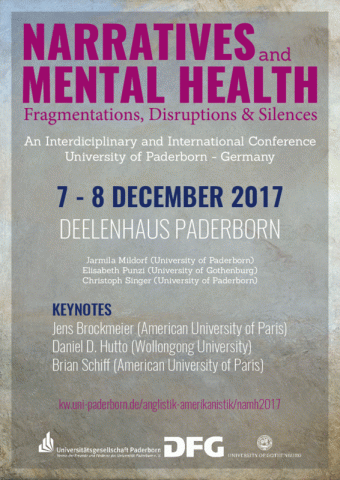Mental illness and, conversely, the promotion and sustenance of mental health pose great challenges in our globalized world. Economic, political, demographic and cultural changes affect all societies and the individuals living in them. Even though mental problems are highly idiosyncratic and can manifest themselves in myriads of ways, the medicalization of psychological and psychiatric care as well as of mental health services more generally has led to approaches (both in treatment and research) that favour quantification and so-called evidence-based procedures. Rather than attending to individual persons and their idiosyncratic narratives, such approaches extrapolate from ‘typical’, standardized cases; questionnaires and manuals have become the standard tools for diagnosis. Likewise, many medical practitioners working, for example, in general practice and primary care, accident and emergency, paediatrics and gerontology, see psychosocial issues or illness resulting from such issues in their daily work but they may feel ill-equipped to deal with them. The economy-driven medical framework within which they treat patients rarely allows them a more holistic view.
This conference seeks to explore the liminal zones where mental illness, but also much of ‘healthy’ mental functioning, manifests itself: in fragmentations, disruptions and silences. It explores these aspects in a variety of contexts and artefacts: psychotherapy and medical practice; literature, the arts and music; caregiving and interpersonal relationships – thus hoping to offer new vistas for psychological, psychiatric and medical practice and training. Theoretical approaches and new sub-disciplines such as Narrative Psychology or the Medical Humanities have over the past decades challenged the existing institutional frames of reference and practices in psychiatry, psychology and medicine. They foreground especially the significance of narrative as a way of sense-making and self-expression and its relationship to identity work, remembering and human communication. At the same time, these processes of meaning-making and communication are anything but coherent, concise and linear. But it might be especially these areas where communication becomes meaningful, and practices can be refined and improved.
Moreover, philosophical debates surrounding the ethical implications of biomedicine and questions concerning personhood, autonomy, the ‘good life’, and so on have pinpointed the importance of self-reflection and a more critical stance. In recent years, scholars and practitioners have furthermore begun to explore the benefits of employing artistic forms of expression such as painting, creative writing or music in psychotherapy and medical treatment. There is some recognition of the fact that humans are essentially complex beings who cannot be fully grasped by scientific methods alone. Still, the scientific paradigm prevails.
The conference aims at offering a forum for cross- and interdisciplinary debate and therefore invites contributions from scholars and practitioners working in diverse fields: literary and cultural studies; sociology; philosophy; theology; psychoanalysis (or psychology in general); art history (including the history of architecture); film studies; political theory, etc
start_date:
Thursday, December 7, 2017 - 12:30
end_date:
Friday, December 8, 2017 - 12:30
News image:

